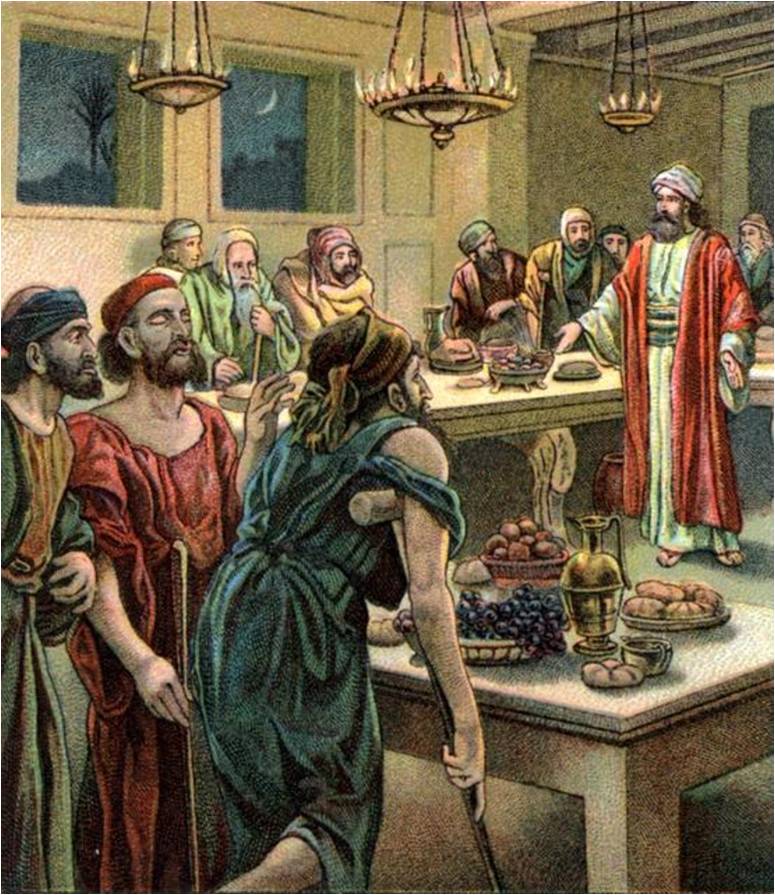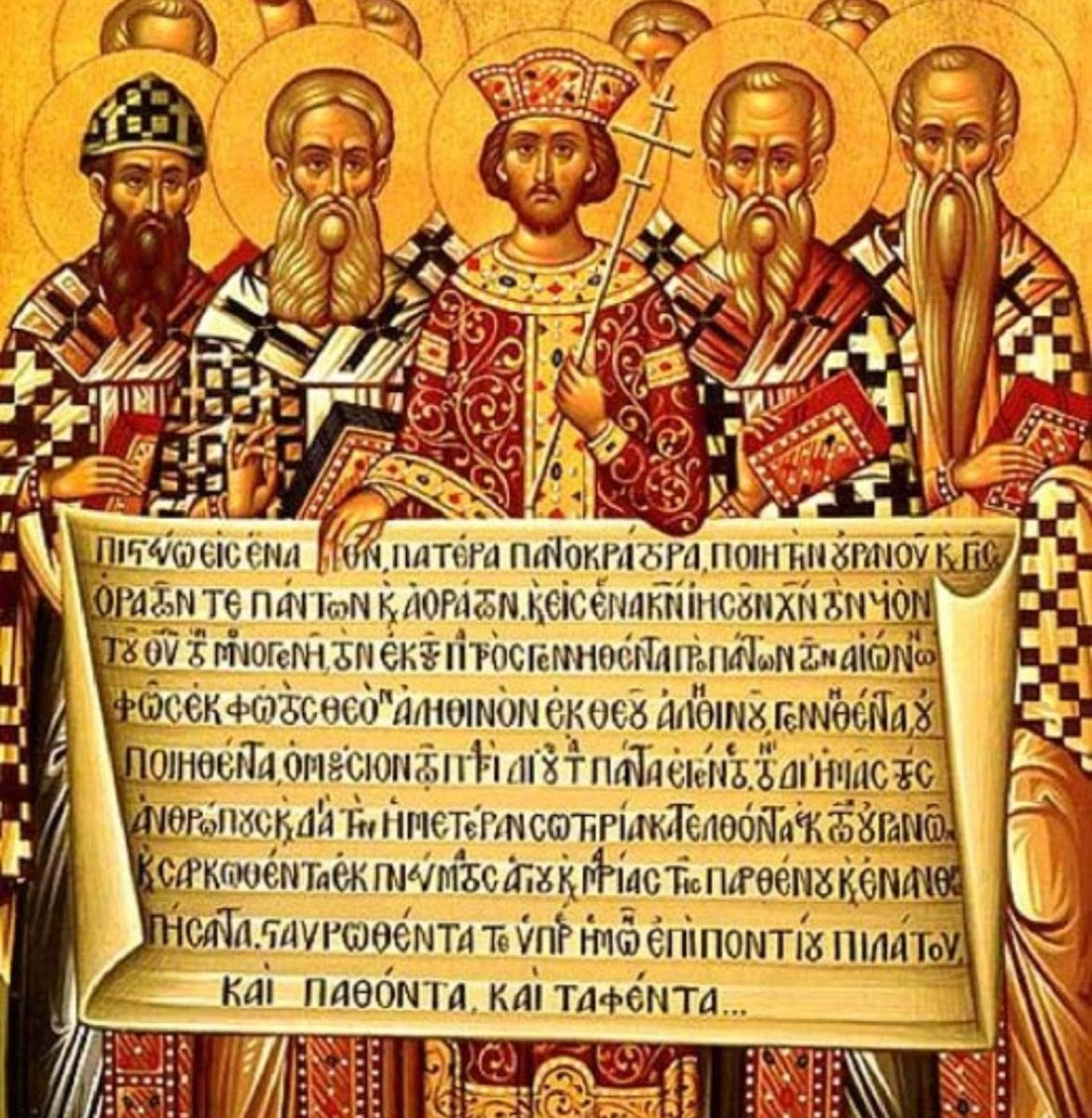Bethlehem Lutheran Church, Lebanon, OR
Second Sunday after Trinity + June 30, 2019
Text: 1 John 3:13-18
The word “love” has taken on a life of its own. It’s as if everyone has their own private dictionary of what they want it to mean. So many interpret it simply as an emotion, and a shallow emotion at that. The word “love” is the same as strong affection—I have good feelings toward you because you put butterflies in my stomach, but as soon as that euphoria wears off, then I can just as easily despise you and cast you off. Love is a strong emotion, but that’s only a narrow slice of what love encompasses.
It all starts with God, who loves. Man’s love is fickle, man’s love is finite, and soured by bad history. Man’s love is fallible, no matter how strong or devoted. The Christian band, Third Day, showed this in their song (appropriately named) “Love Song.” Written first person from the Lord:
“I’ve heard it said
that a man would climb a mountain
Just to be with the one he loves
How many times has he broken that promise
It has never been done
I’ve never climbed the highest mountain
But I walked the hill of Calvary
“Just to be with you,
I’d do anything
There’s not price I would not pay
Just to be with you, I’d give anything
I would give my life away.”
No matter our experiences or our feelings, God teaches us what love truly is: “By this we know love, that He laid down His life for us.” Here is the gold standard for love: our Lord Jesus Christ. He is Almighty, and yet He washed His disciples’ feet. He is a King, and yet wore the form of a servant and was beaten for others’ crimes. He was immortal and infinite, and yet to seek us He entered this world. God became flesh. While we were yet sinners, God died for us.
That’s what love is. Not just a feeling, although the emotions are involved. Not just a word, although the Word of God is living and active. Love is not a passive thing, but a movement of the heart that pours out self-sacrificing action. John 3:16 gives us a definition of love: “God loved the world, namely that He gave up His only-begotten Son that whoever believes in Him may not perish.” (John 3:16, alt. translation) Call this not just love, but divine love.
But there’s a problem when it comes to us and divine love. It’s problem we run into when we see the difference between God’s perfect love and man’s flighty love. God made us for love, and even commands, “You shall love your neighbor as yourself.” Yet, it’s easy to find examples contrary to that.
We could sit here all day, talking about what love truly is. But, it’s not good enough to just have a head knowledge of divine love, looking down on the ignorance of others. We aren’t just to receive divine love and go on our merry way. John says, “…And we ought to lay down our lives for the brothers.” How important is this?
Verse 14: “We know that we have passed out of death into life, because we love the brothers. Whoever does not love abides in death.” The presence of divine love for our fellow human being is the evidence that God’s love has had its intended result in us. When God talks about our loving as He has loved, He’s really talking about a living faith that abides in Him.
Maybe an illustration is best: “If anyone has the world’s goods and sees his brother in need, yet closes his heart against him, how does God’s love abide in him?” Like with love, heart is another word that gets boiled down to simply mean emotions. But the Greek word, often translated “have compassion,” means the guts, the place where you feel your deepest affection and your deepest unease. If you close your guts, cut off affection for your brother in need, how does God’s love abide in you? It’s not a jab, or a religious trump card to manipulate someone; it’s a question of fact.
The difference between God’s love and our love is important, and where it exists, it is a call for us to repent. Yes, Lord, I have closed my heart to my brother’s need. I’ve passed him by; I haven’t picked up the phone; I’ve resented that he never seemed to learn his lesson. And yet that is exactly what God did for you! In His love for you, in spite of your sin, He did not close His heart. “And out of compassion, the master of that servant released him and forgave him the debt.” (Matt. 18:27) This is what our heart (our guts) should do when we see others in pain and grief. Rather than push them away, make excuses why it’s not our problem, we are to live in that love which we so highly prize for ourselves. It’s the love that won for us eternal life.
How do we get there? This is the Lord’s doing, to make His people those who know His love in their inner being. Trust what God is able to do with you, because He is the one who removes your heart of stone and gives you a heart of flesh (Ezek. 36:26). First of all, trust that He is able and willing to forgive all those times when you closed your heart to your brother, for the sake of Christ.
Then, with the gift of the Holy Spirit in you, pray for Him to continue making you a new creation in Christ (2 Cor. 5:17) Think of this when we sing and pray the Offertory in a minute: “Create in me a clean heart, O God, and renew a right spirit within me.” You are confessing to God that it’s not good enough that you have a cold or lukewarm heart toward others. Don’t let us be Cain, who was so blinded by his own jealousy that he raised a hand against his brother. Don’t let us fail to raise our hands in help like the priest and the Levite who passed by the man in the ditch whom the Samaritan helped (Luke 10:29-37). Give us a heart to recognize that all that we have is a trust from You for supporting the ministry of the word, caring for ourselves and our family who depend on us, and being willing to share our abundance when the need arises. “Cast me not away from your presence and take not your Holy Spirit from me.” Give us a true fear of you, never to become complacent in our place in your Kingdom. Keep us also from despairing of your mercy and believing that you have called us to be your children.
And remember our Lord’s promise: “You did not choose me, but I chose you and appointed you that you should go and bear fruit and that your fruit should abide, so that whatever you ask the Father in my name, he may give it to you. These things I command you, so that you will love one another.” (John 15:16-17) God grant it for you, for the sake of Jesus. Amen.





